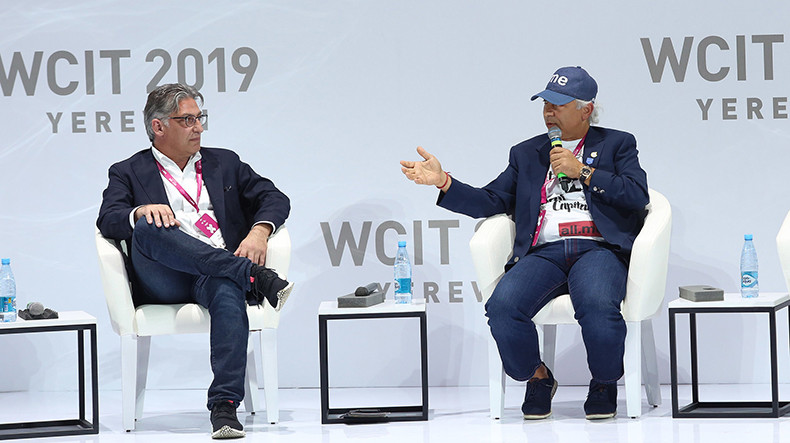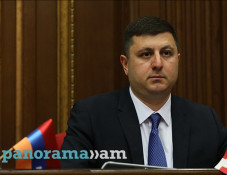
all.me in the spotlight at the blockchain and digital assets session at WCIT 2019
all.me in the spotlight at the blockchain and digital assets session at WCIT 2019
October 9, 2019 was the third and final day of the 23rd World Congress on Information Technology (WCIT). According to the report by Reuters , the gathering that took place throughout these days in Armenia’s capital represented a great meeting of minds and visionaries including representatives of companies like all.me (https://all.me/news), Systech, Google, Yandex, TeamViewer, and many others. As the theme for this year’s WCIT was the promises and perils of decentralization, it was only fitting that a panel discussion was held on new technologies that have particularly changed and even disrupted the world as we know it.
Thus, a specific panel session was held entitled “Blockchain & Digital Assets / Miseducation, Technology & The Individual”. During the conversation, speakers broke down the conjoined concepts of blockchain and digital assets that have captured the imaginations of de-centralizers the world over and dominated mainstream media coverage of the tech the technology space. More specifically, speakers noted how the proponents of these technologies believe them to be universal; moreover, there has been no use case in which advocates of blockchain technology believe a given goal cannot be accomplished by its implementation. Yet all of this talk of promise remains largely stand today as unrealized potential.
Blockchain & Digital Assets.
Throughout the conversation, panelists endeavored to understand, beyond the slogans and evangelism what are the true uses of blockchains and are they all they are imagined to be? Is blockchain even necessary or sustainable? Will nation-states tolerate digital assets used as currencies outside the control of the established international monetary and financial system? Should they live in a world in which consequential externalities can be generated by a teenager in his parents’ basement and travel around the world in hours? Are dark web criminal activities and terrorist financing a price worth paying for an abstract promise?
The keynote address was delivered by Arthur Vayloyan, CEO of Bitcoin Suisse and the conversation was moderated by Tim O'Regan, Co-founder & Managing Director of Point Blank Intelligence. Other panelists included Henri Arslanian, FinTech & Crypto Leader at PwC; Nikhil Nayab, Global Head of Payments Innovation and Blockchain at Conduent; Tom Trowbridge, Co-Founder of Hedera Hashgraph; and Ott Vatter, Managing Director of e-Residency of Estonia.
Mr. Arslanian encouraged listeners to not view digital assets in a vertical way. “Digital assets, blockchain, an AI are all connected. It’s not like one plus one equals two, but more like one plus one equals 22. There’s an exponential effect here.” He also shared his belief that soon everyone will be able to monetize their data.
all.me: The Future of Data Monetization
This point flowed seamlessly into the Q&A that was held at the end of the session in which Dr. Artak Tovmasyan, Chairman of the Board of Directors of all.me group made a brief remark about all.me helping shape the future of digital by combining a social network, marketplace and payment service in one app. Panel moderator Tim O'Regan noted, “So the future is already here!”
all.me is an app that features three interconnected components: a social network, a marketplace, and payment service. meNetwork is all.me’s social network that empowers active users by sharing up to 50% of advertising revenue. meMarket is an integrated marketplace that allows users to buy and sell different items from each other or reputable brands on all.me. Finally, mePay is a payment service that will allow users to conduct daily payments in ME Token both within the app and externally.
Mr. Nayab from Conduent expressed interest in all.me while noting that many companies are looking to moving away from digital cash. “It’s a very exciting time; to see companies try to transition from traditional transactions. Where once they might have made transactions using a credit card rail, but actually moving the value three days later - now more and more we see a tendency toward a more real-time movement of value. There is an enormous opportunity to be had here and all of us look forward to the innovations that will take place.”
Newsfeed
Videos






























